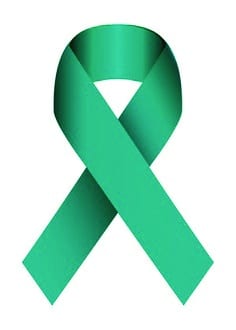
Behavioral Health:
United Behavioral Health/Optum: 1-866-342-6892 (toll-free) 24 hours a day, 7 days a week
An emotional support hotline is available, free of charge, regardless of behavioral health plan membership. It provides access to specially-trained mental health specialists.
Prescription Drugs:
Accredo and Express Scripts: 1-800-842-0070 (toll-free) 24 hours a day, 7 days a week, express-scripts.com
If you are affected by the hurricane and need your medicine, we can help. If you need an emergency fill, login to express-scripts.com and go to Find a Pharmacy to locate a nearby network pharmacy. Then, call the pharmacy to check if it is open. If your ID card is unavailable, call the number above for assistance, and to locate a nearby network pharmacy. Deliveries might be delayed into affected areas.
Vision:
EyeMed: 1-866-652-0018 (toll-free) Mon-Sat 7:30 a.m.-11 p.m. ET; Sun 8 a.m.-8 p.m. ET
If you’ve lost, broken or damaged your eyewear, emergency (temporary) replacement glasses can be sent to you, at no cost, with overnight shipping (must call by 2:30 p.m. ET for same-day processing). Or, if you prefer to order permanent replacement glasses or contacts, expedited shipping is available.
Medical care and more:
Teladoc: 1-855-764-1727 (toll-free) 24 hours a day, 7 days a week, or for more information visit teladoc.com/michael/
Telemedicine services are available to any resident of an evacuation zone, regardless of health plan membership. Individuals can request a call from a doctor, free of charge, to handle non-emergency medical problems via specific contact information above.
Railroad HEALTHLINK: 1-866-735-5685 (toll-free) 24 hours a day, 7 days a week
Free telephone access to registered nurses is available 24 hours a day, 7 days a week regardless of health plan membership.
Aetna: 1-833-327-2386 (toll-free) 24 hours a day, 7 days a week
Help finding care, behavioral health support, and assistance with finding available shelters and government resources, and other services are available through Aetna’s Resources for Living, regardless of health plan membership to people in affected areas.
Highmark/Blue Cross Blue Shield: 1-866-267-3320 (toll free) Mon-Fri 8 a.m.-8 p.m. ET
For those who reside in areas where States of Emergency have been declared, waivers have been put in place for Medical Authorization Requirements, Claims Timely Filing, and Paying Out-of-Network Claims as In-Network.
UnitedHealthcare: 1-866-735-5685 (toll-free) 24 hours a day, 7 days a week
Free telephone access to registered nurses is available 24 hours a day, 7 days a week regardless of health plan membership. Help finding health care services is available through the toll-free phone number, and in-network rates will be available even if members are not able to see an in-network provider.
HealthAdvocate: 1-866-799-2690 (toll-free) 24 hours a day, 7 days a week
Experts are available to help: locate in-network providers in a new area, find facilities that will be able to provide temporary assistance, transfer medical records and prescriptions, get a short supply of medications if prescriptions have been lost, coordinate care between insurance company and medical providers, answer benefit and treatment questions and help with elderly parents.
Dental:
Aetna Dental: 1-877-238-6200 (toll-free) Mon-Fri 8 a.m.-6 p.m. ET
Members affected by the hurricane who need care or other assistance can access Aetna.

